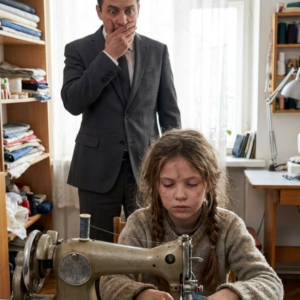15 Stories That Prove Kindness Runs in Some People’s Veins
When Darkness Meets Light: A Collection of Human Compassion
An expanded anthology of heartwarming stories about the resilience of the human spirit and the transformative power of kindness
Introduction: The Light in Our Darkest Moments
Just when we think we’ve lost everything, life surprises us with optimism. Whether it’s a lucky break or a simple act of compassion, these moments remind us that even in the darkest situations, light can shine through. This anthology contains heartwarming anecdotes about the tenacity of the human spirit and the silent power of kindness.
In a world that often feels divided and harsh, these stories serve as gentle reminders that goodness still exists in abundance. They show us that kindness isn’t always about grand gestures or heroic acts—sometimes it’s found in the smallest moments, the quietest words, and the most unexpected places.
Story 1: Grandma’s Hidden Treasure
The Caregiver’s Sacrifice
I cared for Grandma in her final years while my siblings focused on their families. It wasn’t easy—the sleepless nights when she had episodes of confusion, the doctor’s appointments that seemed to multiply each month, the gradual loss of the vibrant woman who had taught me to bake cookies and tell stories that made everything better.
My brothers lived across the country, busy with their careers and young children. My sister called weekly but always had excuses about why she couldn’t visit more often. I understood, in a way—they had their own lives to live. But understanding didn’t make the loneliness any easier as I watched Grandma slip away bit by bit.
During those three years, I moved into her house to care for her properly. I left my apartment, put my social life on hold, and arranged my work schedule around her needs. Some days were beautiful—when her mind was clear and we could laugh together like old times. Other days were heartbreaking, when she didn’t recognize me or became frightened and confused.
The Will Reading
When Grandma died peacefully in her sleep on a Tuesday morning in spring, my siblings arrived for the funeral with their families in tow. The house was suddenly full of people who hadn’t seen her in months, sharing memories and crying tears that felt both genuine and complicated.
At the will reading, my siblings received her jewelry—the pearl necklace that had belonged to her mother, the diamond ring from Grandpa, the emerald earrings she’d worn to church every Sunday. Valuable pieces with family history, items that could be passed down to their children.
All I received was her old car—a 1995 Toyota Camry with faded blue paint and a temperamental air conditioner. My siblings tried to hide their relief, but I could see it in their faces. They’d gotten the real treasures, and I’d gotten the burden of an aging vehicle that would probably need expensive repairs.
I felt crushed, not because I’d wanted the jewelry for its value, but because it felt like a symbol of how my sacrifices had been overlooked. I’d given three years of my life to caring for her, and this old car seemed like such a small acknowledgment of that devotion.
The Year of Grief
For a full year, that car sat in Grandma’s driveway, which I couldn’t bear to sell yet. Every time I looked at it, I felt a mixture of sadness and resentment. The house felt too empty without her, but I couldn’t bring myself to go through her belongings or make decisions about what to do next.
My siblings had returned to their lives, calling occasionally to check on me but clearly viewing the estate matters as settled. They had their beautiful keepsakes to remember Grandma by, while I had a car that reminded me of feeling forgotten and undervalued.
Friends and coworkers urged me to sell the house and move on, but something kept me there. Maybe it was the hope that being in her space would help me feel closer to her, or maybe I just wasn’t ready to let go of the last connection to the woman who had been my anchor for so many years.
The Discovery
Today, I finally decided to take the car for a drive. I needed to run errands, and my own car was in the shop. As I started the engine, a cassette tape began to play automatically—something I hadn’t noticed during the brief test drives after her death.
Suddenly, Grandma’s voice filled the car, clear and strong as I remembered it from her healthier days. “Hello, my dear Sara,” she said, and I nearly had to pull over from the shock of hearing her again. “If you’re listening to this, then I’m gone, and you’re probably feeling confused about why I left you that old car.”
I was crying before she finished the sentence.
“Open the glove compartment, my dear Sara!” her recorded voice continued with the enthusiasm I remembered from childhood treasure hunts.
With shaking hands, I pulled over safely and opened the glove compartment. Inside was a stack of cash—more money than I’d seen in one place in years—and a bundle of letters, all in Grandma’s familiar handwriting with my name on each envelope.
The True Inheritance
The money was incredible—enough to pay off my student loans and put a down payment on a house. But even more precious were her words in those letters. She had written them over the course of her final year, when her mind was still clear enough to express everything she wanted me to know.
In letter after letter, she told me how deeply she loved me, how much she valued our time together, and how proud she was of the woman I’d become. She wrote about specific moments we’d shared during her care—times when I’d made her laugh during difficult treatments, nights when I’d stayed up with her during her fears, mornings when I’d made her favorite breakfast just to see her smile.
“Your kindness was your greatest gift,” she wrote in one letter, “and the fact that you took care of me without knowing anything about this money makes me incredibly proud of you. You loved me purely, without expectation of reward, and that is the most precious thing anyone could give another person.”
She explained that she’d wanted my siblings to have the jewelry because they would appreciate its sentimental value and pass it down to their children. But she’d saved her money for me because she knew I would need it most, having sacrificed so much of my career and personal life to care for her.
“The car was never the real gift,” her final letter explained. “It was just the delivery method for what I really wanted to give you—security, freedom, and the knowledge that your love and sacrifice were seen and treasured. You are my true inheritance to the world, Sara, and this money is just my way of making sure you have the foundation to build the beautiful life you deserve.”
Those letters gave me strength in ways I hadn’t expected. They validated my choice to care for her, helped me process my grief, and reminded me that love is always noticed, even when it isn’t immediately rewarded.





